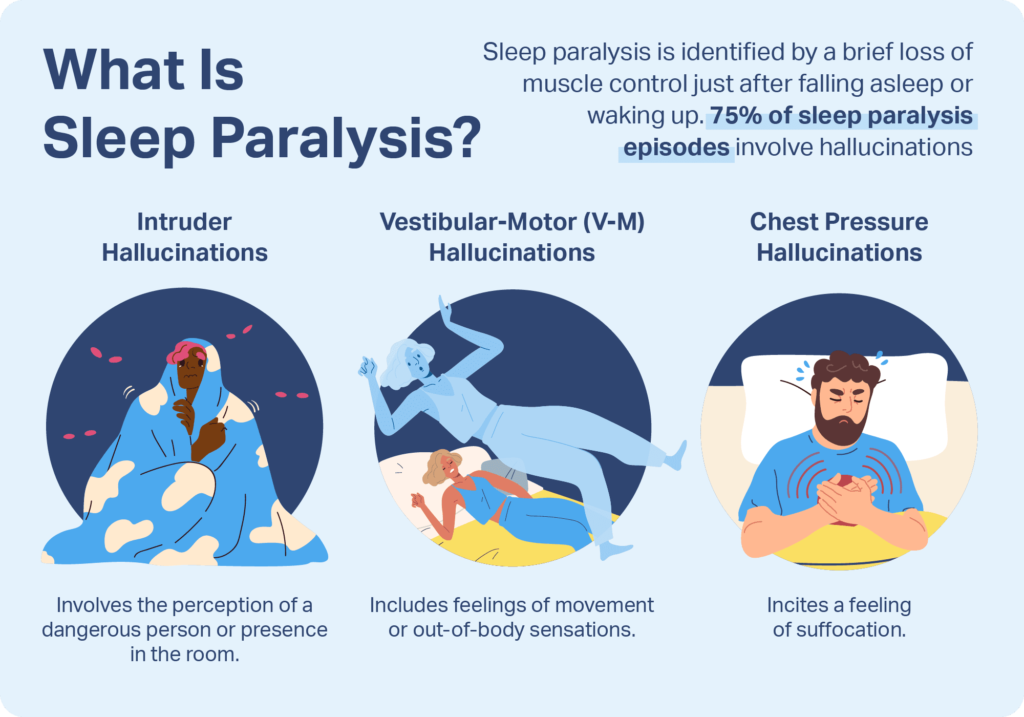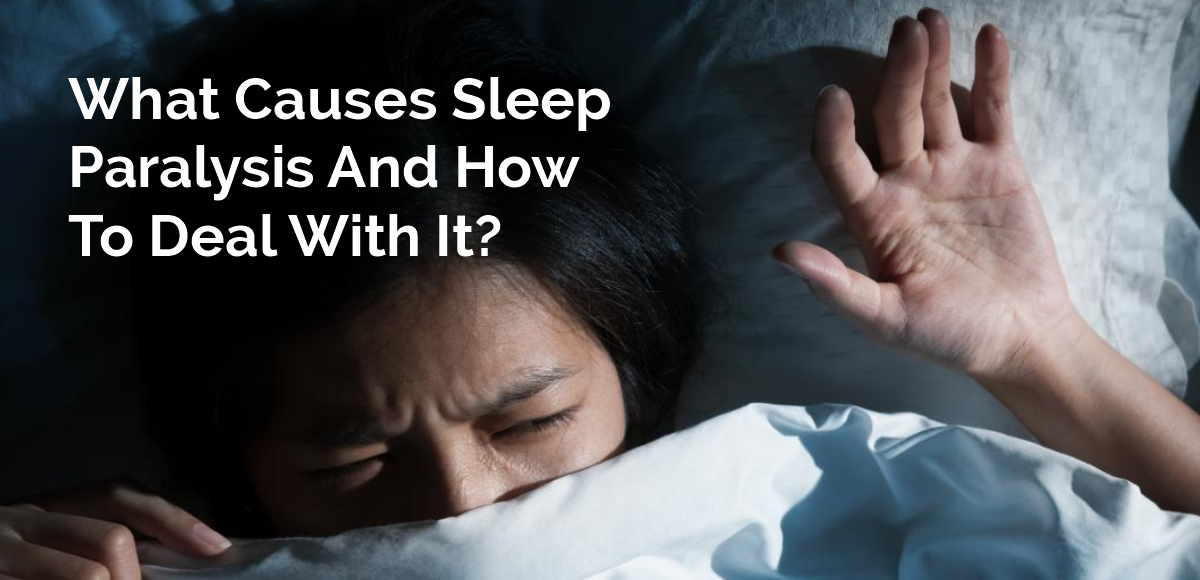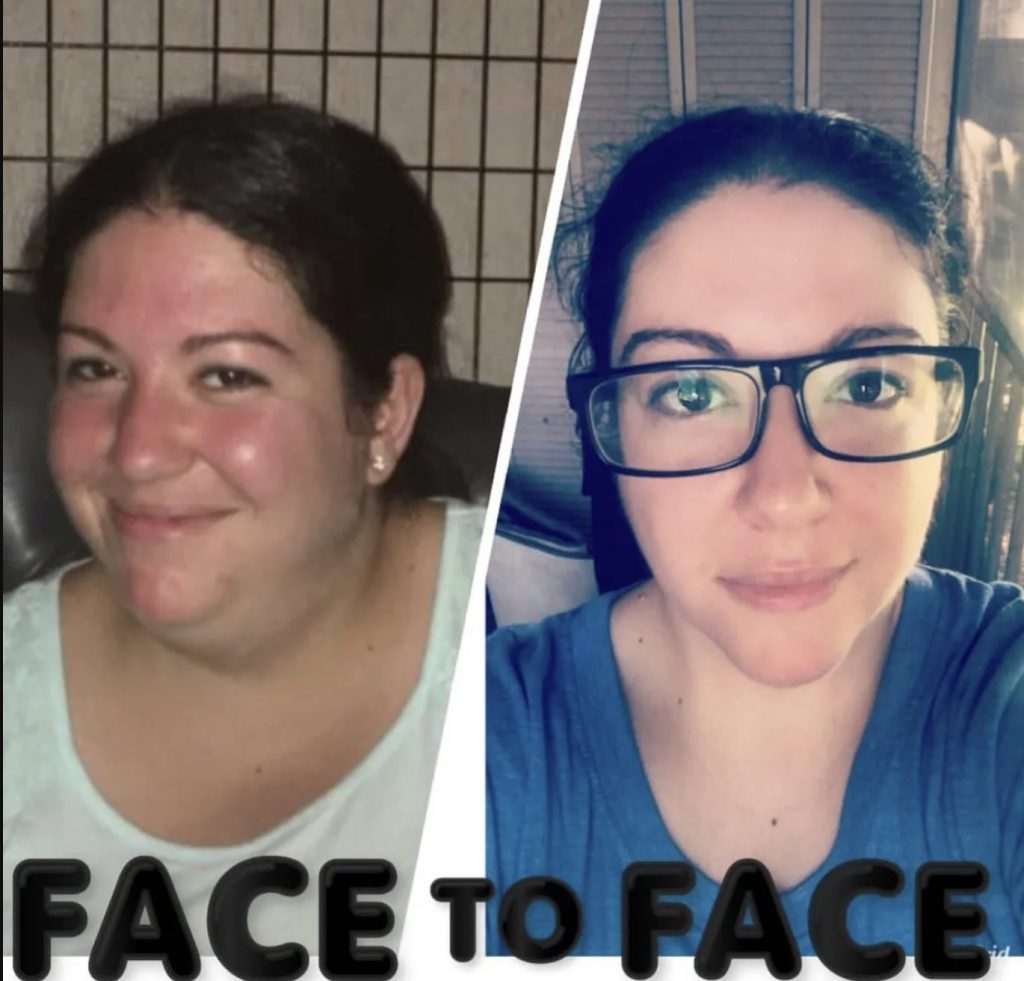What is Sleep paralysis?
Sleep paralysis is when you cannot move or speak as you are waking up or falling asleep. It can be scary but it’s harmless and most people will only get it once or twice in their life.
While falling asleep or waking up, your brain helps the muscles in your arms and legs relax. With sleep paralysis, you regain awareness but can’t move.

Paralysis is temporary and isn’t a sign of a major medical issue. Pinpointing the source of your symptoms and addressing them can help you avoid future episodes.
How long do sleep paralysis episodes last?
They last anywhere between a few seconds and a few minutes.
Why and how does sleep paralysis happen?
During the rapid eye movement (REM) sleep stage, you’re likely to have dreams. The brain prevents muscles in your limbs from moving to protect yourself from acting dreams out and hurting yourself.
Sleep paralysis happens when you regain awareness going into or coming out of REM. Because narcolepsy is characterized by unstable wakefulness and unstable sleep, people with narcolepsy have frequent night awakenings that can be associated with sleep paralysis.
What happens during sleep paralysis?
During sleep paralysis you may feel:
- awake but cannot move, speak or open your eyes
- like someone is in your room
- like something is pushing you down
- frightened
These feelings can last up to several minutes.
What are the symptoms of sleep paralysis?
The symptoms include:
- Paralysis in your limbs.
- Inability to speak.
- Sense of suffocation
- Hallucinations.
- Fear.
- Panic.
- Helplessness.
- Tightening around your throat.
- Daytime sleepiness may be a sign of narcolepsy.
Causes of sleep paralysis

Sleep paralysis happens when you cannot move your muscles as you are waking up or falling asleep. This is because you are in sleep mode but your brain is active.
It’s not clear why sleep paralysis can happen but it has been linked with:
- Insomnia: disrupted sleeping patterns – for example, because of shift work or jet lag
- Narcolepsy – a long-term condition that causes a person to suddenly fall asleep
- Post-traumatic stress disorder (PTSD)
- General anxiety disorder
- Panic disorder
- Family history of sleep paralysis
- Drugs-Good use of drugs like heroin and cocaine can start sleep paralysis.
- Sleeping on back–While sleeping, sleeping posture plays the game. Wrong sleeping posture or sleeping on the back can cause sleep paralysis.
- Poor mental health–People who have a mental disorder are the primary victims of sleep paralysis.
- Stress-Stress and anxiety cause sleep to get deprived and causes sleep paralysis.
Things you can do to help prevent sleep paralysis
Do
- try to regularly get 6 to 8 hours of sleep a day
- go to bed at roughly the same time each night and get up at the same time each morning
- get regular exercise, but not in the 4 hours before going to bed
Don’t
- do not eat a big meal, smoke, or drink alcohol or caffeine shortly before going to bed
- do not sleep on your back – this can make sleep paralysis more likely to happen
Non-urgent advice: See a GP if:You often have sleep paralysis and you feel:
- very anxious or scared to go to sleep
- tired all the time due to lack of sleep
Treating sleep paralysis
A GP may be able to treat an underlying condition that could be triggering sleep paralysis such as insomnia or post-traumatic stress disorder.
If this does not help they might refer you to a doctor who specialises in sleep conditions.
How can I prevent future episodes of sleep paralysis?
There isn’t much you can do to prevent sleep paralysis from happening. But there are steps you can take to lower your risk.
One of the best ways to avoid sleep paralysis is to improve the quality of your sleep. You can do this by:
- Having a set sleep schedule with specific times for going to bed and waking up.
- Creating a comfortable sleep environment that’s dark and quiet.
- Putting phones, tablets, e-readers, and computers away in advance of bedtime.
- Relaxing before bed by taking a bath, reading, or listening to soothing music.
Treatment from a specialist
You might be given medicine usually used to treat depression. Taking this type of medicine at a lower dose can also help with sleep paralysis.
You might also be referred for cognitive behavioral therapy (CBT).



